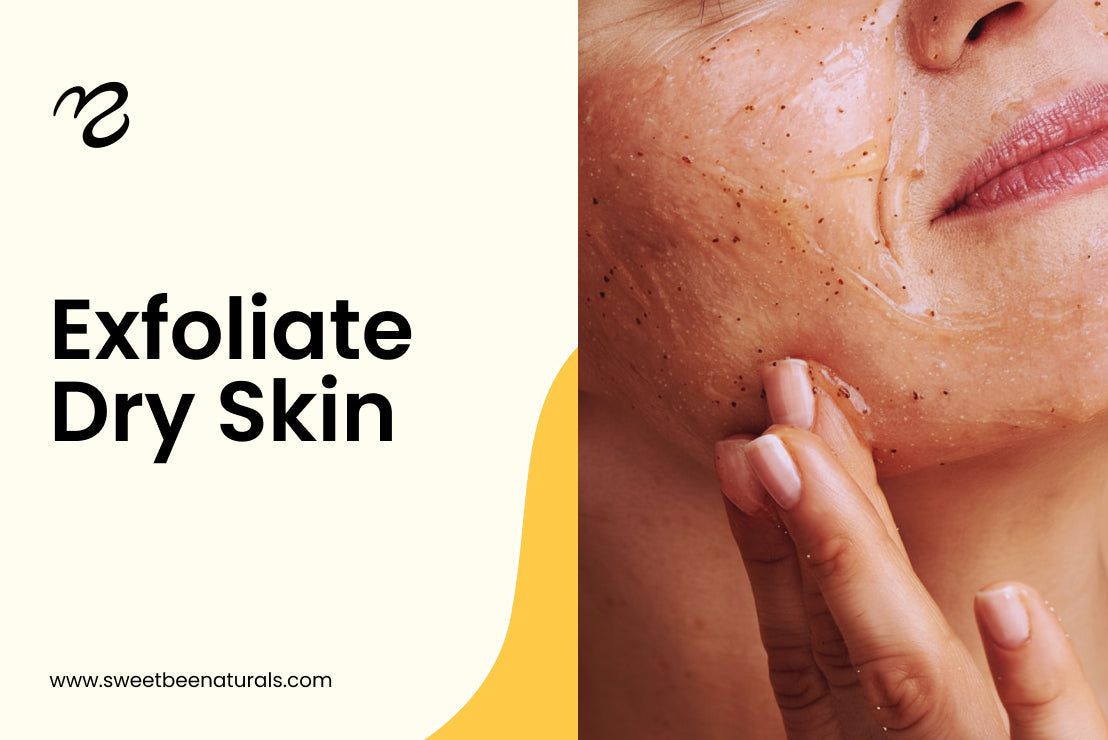Have you ever heard about a natural ingredient that is a complete skincare package with just one ingredient? Propolis is one such natural product that has diverse roles. From healing your skin wound to treating acne, it has a lot of benefits for the skin.
In ancient times, this honey bee-made product was considered a good treatment for skin wounds and inflammation. However, it is now used as the best skincare product that helps to make your skin glow and scar-free.
But what makes propolis stand out? To explore the benefits of propolis for skin, let’s discuss its usefulness in skin care and which components make it so special.
Let’s get started.
What Is Propolis?

Propolis is a resin-like material created by bees using plant resins, beeswax, and their enzymes. Bees use it to seal cracks in their hives and protect against bacteria, viruses, and fungi because propolis acts as a natural antimicrobial marvel and is known as the "defender of the hive.
Propolis has long been valued in traditional medicine. Ancient Egyptians utilized it to treat wounds, while Greeks and Romans used its healing attributes.
Today, the benefits of bee propolis for skin, including its ability to heal, soothe, and shield skin, have made it a perfect ingredient in modern skincare.
Who Should Use Propolis?
If your skin is dry, sensitive, acne-prone, or just needs a glow-up, propolis could be the solution. Its anti-inflammatory and antimicrobial properties make it especially helpful for people with breakouts, redness, or damaged skin.
How Should I Consume Propolis?
You don’t have to take it internally to see results. Propolis works best when applied topically. Use a serum, cream, or balm infused with propolis to target irritation or dryness directly. If you’re new to it, start with a patch test and work it into your routine slowly.
What is propolis good for skin? It is nature’s multitasker, suitable for everything from hydrating to brightening and protecting the skin.
What Makes Propolis Good for Skin?
Propolis is full of skin-loving nutrients, including vitamins B1, B2, B6, C, and E, along with essential minerals like zinc, copper, and magnesium. These components offer a strong antioxidant defense.
All these components give propolis unique features to act as an anti-inflammatory, anti-microbial, and antiaging agent.
With these super healing powers, propolis eliminates the signs of environmental stress from your face and changes your skin into fresh, glowing skin.
Top Benefits of Propolis for the Skin

Propolis serves multiple purposes, from healing minor cracks to major wounds, and gives you smooth skin. Here are the prominent benefits of propolis.
1. Soothing Inflammation and Irritation
Propolis is the best solution for redness, irritation, and other severe skin conditions like eczema. Research proves that propolis is an anti-inflammatory and gives you a calming effect.
This feature is also helpful in soothing the after-effects of other reactive and makeup products on your skin, removing redness.
2. Healing Acne and Acne Scars
Propolis is rich in antimicrobial peptides that kill the bacteria responsible for skin acne and other pimples. Its healing effect significantly impacts scars and pigmentation, leading to clear skin.
Moreover, it can replace old cells with new ones and stimulate the skin's repair process. All these features combine to turn your skin into a soft, silky appearance.
3. Protecting Against Environmental Damage
Individuals with prolonged outdoor activities experience significant skin damage from ultraviolet radiation. These radiations cause multiple effects, including aging, which is a significant one.
Research shows that Propolis serves as an excellent protection for such people. Its antioxidants counteract the free radicals that contribute to aging and reduce the impact of sunlight.
4. Supporting a Healthy Skin Barrier
The skin barrier is crucial in keeping your skin hydrated and safeguarding it from external irritants. Propolis strengthens this barrier, enhancing your skin’s natural defenses.
This is particularly advantageous for those with dry or sensitive skin.
5. Natural Antimicrobial Action
Propolis does more than just fight acne. Its antimicrobial features minimize infection risk and shield your skin from bacteria, fungi, and viruses.
This makes it an excellent option for treating minor cuts, burns, or wounds.
How to Use Propolis in Your Skincare Routine
Incorporating propolis into your routine is simple as it is available in various forms like serums, creams, and ointments. Follow these steps for the best results:
- Begin with a gentle cleanser to prep your skin.
- Then, use a toner to balance your skin’s pH.
- Select a propolis-based serum or moisturizer and gently apply it to your face.
- Lastly, apply a broad-spectrum sunscreen to lock in the benefits.
Is Propolis Safe for Everyone?
While propolis is generally safe, people with bee or honey allergies should proceed cautiously. Common side effects may involve redness or irritation. Conduct a patch test before applying propolis to your face to prevent reactions.
If you experience irritation, stop using it and seek advice from a healthcare professional dermatologist.
Sustainability is also a concern. Over-harvesting propolis can harm bee populations, so choose products from brands committed to ethical and eco-friendly sourcing.
Best Products That Constitute Propolis
Here are some products that give you the best way to incorporate propolis into your skincare routine.
Propolis Ointments for Skin Repair
Propolis ointments are ideal for healing minor wounds, burns, and eczema. They deliver deep hydration and form a protective barrier that accelerates recovery.
Propolis-Infused Creams and Serums
Creams, serums, and balms with propolis are excellent for hydration, soothing, and anti-aging benefits. Use products with high concentrations of propolis extract to get maximum results.
Propolis-Based Soaps
Propolis soaps provide a gentle cleanse, preserving the skin’s natural moisture balance. These are perfect for daily use and effective in addressing acne or dryness.
Royal Jelly vs. Propolis
Although both are bee-made, royal jelly and propolis serve different purposes. Royal jelly focuses on nourishing and rejuvenating, while propolis is a protector. Propolis shields your skin from external stress, calms irritation, and promotes healing.
Side Effects of Royal Jelly
Royal jelly can cause allergic reactions in some individuals, particularly those with sensitivities to bee products. Reported side effects include skin rashes, asthma attacks, and digestive issues.
If you are trying it for the first time, start with a small amount and consult a healthcare professional if you have any concerns.
Wrap Up
Conclusively, propolis is an organic magical remedy with many propolis extract benefits for skin. From calming inflammation to shielding against environmental damage, the bee propolis benefits for skin are undeniable.
With its natural antimicrobial properties, propolis is perfect for treating common skin issues while strengthening your skin’s natural barrier.
Whether in a serum, cream, or ointment, adding propolis to your daily routine can bring you smoother, healthier, and more radiant skin.
FAQs
What does propolis do for skin?
Propolis soothes, heals, and protects the skin while reducing inflammation. It is perfect for sensitive or acne-prone skin.
Which is better, hyaluronic acid or propolis?
Hyaluronic acid provides deep hydration, while propolis skincare benefits include healing, protection, and antibacterial benefits. So, propolis is more complementary in skincare.
Does propolis fade scars?
Propolis aids in skin healing and reduces redness, which can help fade the appearance of scars over time.
Can I use propolis everyday?
Propolis is gentle enough for daily use and can be incorporated into most skincare routines.



